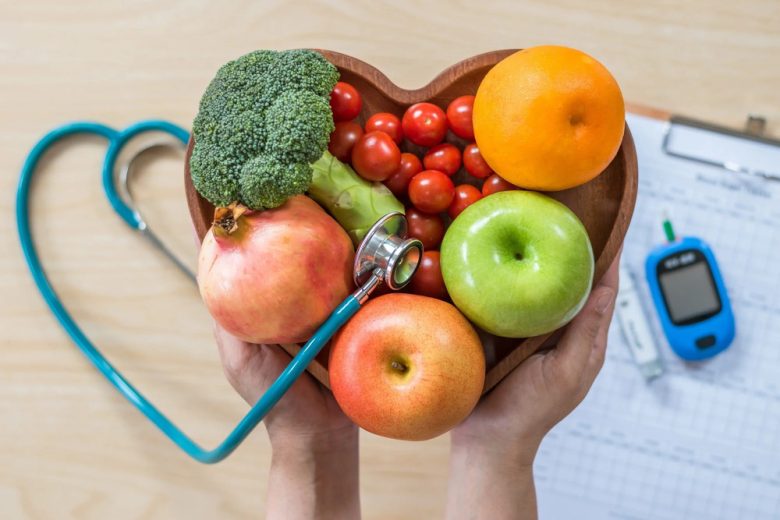Managing diabetes, I believe is like navigating a maze. There’s so much information out there, so much of it contradictory that it’s not surprising that people get puzzled trying to understand which diet they are required to follow. A well-balanced nutrition is essential in making sure there is control of the blood sugar levels and the health of the individual center. But what does that really mean, for the person on diabetes?
This guide seeks to provide practical advice and information to clear the confusion on food and diabetes management. And it does cover everything from understanding how different foods affect your body’s physiology to what meal planning techniques you can adopt. Be it old or new, let us move on to read what more towards transitioning into a better dietary practice can be done.
The Basics of Diabetes and How It Will Affect the Diet:
Diabetes is a health disorder marked by the body’s inability to use glucose as it should. In the case of diabetes, there may be an inadequate supply of insulin, or it may not work effectively, and the result will be elevated levels of blood sugar. Eating is a very important aspect of the control of this disease. The choice of foods you eat determines the amount of sugar in your blood and how healthy you are. Carbohydrates are one of these foods that can vindicate glucose abruptly after being ingested; it’s vital to grasp the manner in which they relate to the body and what makes it.
The aftermath from overlooking good food intake could be devastating. If blood sugar is not kept in check, complications such as nerve damage, kidney problems, and heart diseases may arise. Keeping in mind the nutrition content of every single meal helps patients with diabetes be more prudent in their food options. Its not about only diets; its also about nutrition and how to create healthy and varied food options with moderation.
A Balanced Diet for Diabetes:
A nutritious and satisfying meal is essential to everybody living with diabetes. It ensures blood sugar levels are maintained and overall health is built. So, if you eat foods in different groups, all the parts of your body will be functioning well. Eating whole grains, lean meat, fruits, and vegetables will boost your energy levels. These supplies fibre that helps in digestion and aids in controlling blood glucose levels.
Furthermore, portioning food helps a lot in overcoming high sugars in the blood. It can help you a lot in dealing with this rather tedious yet vital problem that is nearly daily to most people. Also, balanced eating can decrease the probability of the secondary effects of diabetes. It helps a person to be responsible for their health by deciding what to eat or not. The correlation of food and good health is also very crucial in diabetes management.
Foods Which You Can Include in the Balanced Diet for Diabetics:
In a balanced diet for diabetes, knowing the right foods to incorporate can make all the difference. For example, make use of whole grain foods such as quinoa and brown rice. These options contain fiber and assist in maintenance of blood glucose levels. Non-starchy vegetables are very important as well. These include salad greens, capsicum and cabbage. They are low in calories, however are high in nutrients.
Fruits are also consumed, but care should be taken due to high glycemic fruits among others, berries would be the most favorable. Ones that would not increase the glucose levels are also possible such as chicken, turkey or legumes where these proteins would be filling. Avocados and nuts are healthier fats and help but also aid in heart health without increasing appetite.
Remember to add dairy if it is meant to be incorporated in your diet for diabetes friendly. Go for low fat yogurt or cheese which is still calcium rich without too much sugar. Thus, this combination boosts the general health without compromising on management of diabetes.
Certain Foods Diabetic Patients Can Live Without:
It is necessary to emphasize that informing patients about diabetes self-care includes informing them about in which foods they should avoid. Some foods are not good for blood sugar and should never be included. White bread and way too many pastries are refined carbs and loaded with sugar and scanty fiber. These will cause a rapid rise in sugar level. Rather use brown bread or oat bran in place of this.
Sugary drinks are other foods that are dangerous and should be avoided. Sodas, sweet teas, energy drinks are sugary drinks that have no nutritional benefit whatsoever. Water or unsweetened drinks are great ideas. It is critical to avoid scenario foods since it most likely contains trans fats and sugar which will mess up the blood sugar control. Potato chips and candy are attractive food but best to go for other snacks like fresh fruits or nuts.
Meal Planning and Portion Control for Diabetics:
Meal planning for diabetics is a necessity. It ensures that blood glucose levels are stable and nutrition is well-balanced. With meals planned ahead of time, it is easy to make healthy choices. Portioning is also important. Knowing how much to serve oneself prevents additional calories from being taken in and the number of carbohydrates consumed as well. If required, use measuring spoons and cups or a weighing scale.
Also, if your meal plans include various types of grains, vegetables, proteins, and healthy fats, those will help to make the meals interesting and healthy as well. Always think about making the meal in advance. Pre-cooking food in bulk will help cut down on the cooking time during busy weeks and ensure healthy meal patterns.
Snacks, too, should not be overlooked! Some healthy snacks cheese, nuts or yogurt, can be used to keep the stomach between the main meals without affecting the eating plan.
Cultivating Consistency in Aerobic Exercise Over Week:
A dull routine can lead to giving up after a short time. Believe it or not, consistency is probably the most important factor in achieving your goals. Look to include at least 150 minutes of moderate aerobic activity every week. Scheduling time to perform strength training two times a week is also advantageous to muscle and metabolic health. There is also an element of finding what pleases you.
If you like it as swimming, playing a dancing game, or weeding out with a trowel and working with your discovery children, it is better to stay on a plan; in this case, grovelling is simpler.
Before attempting new exercises, ensure you get a doctor’s guide that will make those exercises work for you and be safe as well. Evaluate your performances through recording all the details, because this aspect helps you understand the progress you are making and keeps you inspired.
Tips for Diabetics on Self-Care and Mindful Eating:
Use of tools that limit one’s engagement to the system is helpful in managing diabetes. It makes you actively participate, appreciating your food. This moving in the right direction ditching foods and then going overboard is not as easy when one is some sort of motivated. Appreciate every morsel and devise your hot cereal strategy with unhurried rhythm. Ask yourself what the taste is, how it looks, how does it smellsand so on. When engaging in such activities, meals become an interesting event.
The two approaches work in a similar pattern with how self-care is also achieved through focus on food. It is equally important to reduce stress through activities like meditation or gentle yoga. Gaining control of such factors could help in improving regulation of blood sugar levels. You might want to keep a food diary to show what you helped yourself with and how you further felt. This in turn can result to making one’s own decisions over the course of time.
Conclusion:
Any disease poses severe dangers in relation to one’s lifestyle, diabetes included. The most significant aspect concerning your health is what you choose to eat. Proper nutrition gives you the opportunity to manage the disease independently. It’s about knowing what is right and letting everybody eat good food without punishing them.
Dietary modification is further complemented by physical activity, making the lifestyle changes more effective in controlling elevated blood glucose levels. Do ask for help if you need it, even from your doctors, since these professionals can give you a lay-out plan that is right for you. Lastly and most importantly, keep in mind that small initiatives help manage and succeed in improving health and wellbeing in diabetes management. Learning any new material is always tiresome, but it is OK—this is the whole point.
FAQs:
1. What are the diet restrictions for a diabetic type II patient?
A good diet encompasses a variety of whole grains, lean meats, healthy oils, fruits, and vegetables. In this case, it is essential to centre one’s attention on low and highly fibrous foods.
2. Can I eat carbs if I have diabetes?
Yes! Carbohydrates cannot be skipped arbitrarily. Instead, concentrate on healthy carbohydrates like brown rice or quinoa, but control the amount being eaten and ensure that they are eaten with protein and good fats to prevent any rise in blood sugar.
3. How many times will I need to eat in a day?
Frequent meals that are spread out over the day can be beneficial in keeping the blood sugar stable throughout the day. For most people, the target should be about three main meals and to add in two to three snacks according to how you feel.
4. Is it important to stay away from sugar completely?
Not needed. It does not work like this. Complete deprivation of sugar is not encouraged. We all love to indulge in sweets once in a while, and this is acceptable if eaten in moderation and planned in such a way that it does not raise blood glucose too high.
5. Should I see a nutritionist regarding my diet plan as diabetic?
Yes indeed! A registered dietitian is able to help design a meal plan that is most suitable for you, bearing in mind your lifestyle and preferences as well as any other diseases that may affect your diet.




